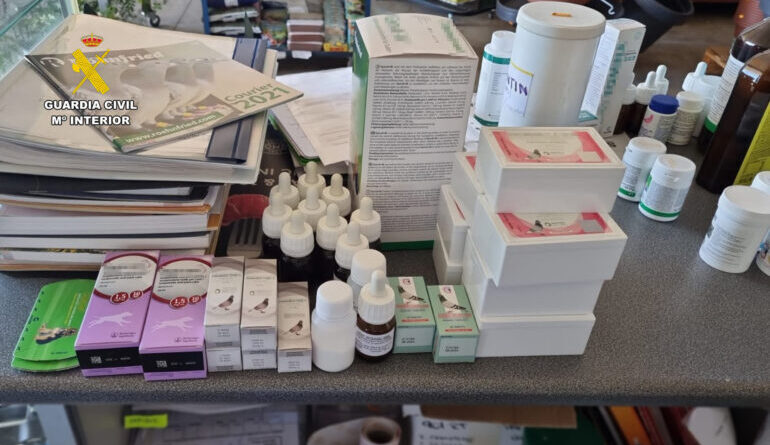Authorities Investigate Three Individuals for Illegal Sale of Veterinary Medicines from Germany, France, and Holland
The Civil Guard of Alicante, through its Nature Protection Service (SEPRONA), is investigating three individuals for a public health offence, accused of irregularly trading in veterinary medicines. The matter is being handled by Court Number 3 of Dénia, after inspecting four establishments in the provinces of Alicante and Valencia, where nearly 7,500 tablets and over a hundred other packages of various medicines were seized.
As early as April this year, thirteen individuals were investigated in Dénia courts for similar offences. The current information from the Civil Guard does not directly link the two cases, although several similarities can be found in the events.
Thousands of Irregularly Sold Tablets
The current investigations began after agents conducted an inspection at an establishment specialising in animal feed. There, 100 suspicious tablets were found, seized, and analysed, determining that it was a medication not allowed for administration in Spain.
For this reason, the Civil Guard continued the investigation and inspected three other establishments where an additional 7,371 tablets were seized, being irregularly sold in these establishments. Some were illegal for sale in Spain, while others, though legal, were being sold without a veterinary prescription, which is required for distribution. The rest were being sold without proper authorisation from the establishment.
Responding to these facts, two men and one woman aged 45 and 54 were investigated on July 11 and 13. They were responsible for the infringing establishments located in four localities in the provinces of Alicante and Valencia. Medicines intended for animal use were seized, including 7,390 illegal tablets, 81 tablets subject to veterinary prescription and being dispensed without it, and 128 packages of non-prescription medicines, which the inspected establishments were not authorized to sell.
Risks of These Medicines
The use of unauthorised veterinary medicines exposes animals to health risks. Furthermore, if used on animals intended for human consumption, it can also pose risks to consumers. On the other hand, their clandestine and unregulated trade also produces collateral damages, such as harm to the environment.
The operation was carried out by the Nature Protection Unit (SEPRONA) of the Civil Guard Command of Alicante, with support from the European Union Agency for Law Enforcement Cooperation (EUROPOL), from which data about the origin of the seized medicines, originating from Germany, France, and the Netherlands among others, was obtained. This data allowed investigators to identify the suspects. Collaboration was also sought from the Pharmacy Inspection Area of the Department of Universal Health and Public Health in Alicante and the Department of Inspection and Control of Medicines of the Spanish Agency of Medicines and Medical Devices (AEMPS).

